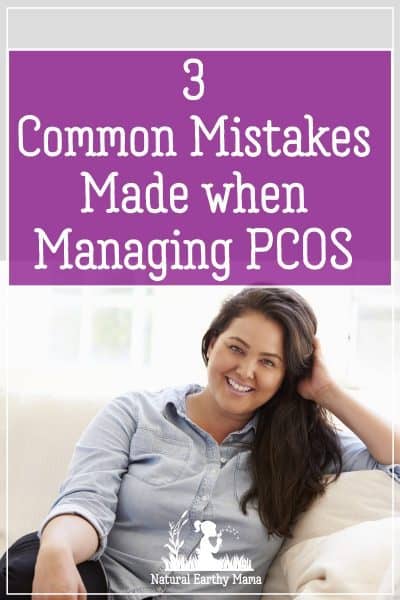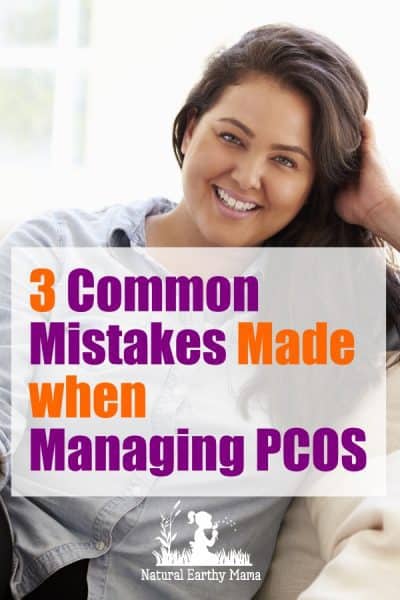 Managing PCOS, or polycystic ovarian syndrome, is often poorly done. PCOS is a condition that little is known about the causative mechanisms and most medical advice ignore the latest research and recommends the same 3 suggestions that I think is some of the worst advice when it comes to treating and managing PCOS.
Managing PCOS, or polycystic ovarian syndrome, is often poorly done. PCOS is a condition that little is known about the causative mechanisms and most medical advice ignore the latest research and recommends the same 3 suggestions that I think is some of the worst advice when it comes to treating and managing PCOS.
Don’t miss my 6 part video series on this topic here.
What is PCOS?
PCOS is fundamentally an issue with insulin regulation, and use, in the body. When that system is broken, our hormones get all out of whack, and an ever-increasing spiral of disease starts happening.
Please read: This information is provided for educational purposes only and is not intended to treat, diagnose or prevent any disease. We encourage you to make your own health care decisions in partnership with a qualified health care professional.
This post contains affiliate links, this means at no extra cost to you, we make a commission from sales. Please read
our Disclosure Statement
PCOS is a hormonal condition, which affects many aspects of a woman’s body. With PCOS, your reproductive hormones are all out of balance.
This can lead to problems with your reproductive system, such as not having your period on time, or missing it entirely. As well as affecting the rest of your body.
Hormones are simply substances your body makes to help different processes happen, the ones that are specifically involved in PCOS include:
Androgens
Often called “male” hormones, or sometimes referred to as just testosterone. Women actually need to have them too. Those with PCOS tend to have higher levels of androgens (testosterone being one of several androgens), which can cause symptoms like hair loss, hair in places you don’t want it, and trouble getting or staying pregnant.
Insulin resistance
For whatever reason that triggers it in the first place, your insulin levels are raised, which causes your cells to become less sensitive to the insulin. Insulin is like the annoying guy that keeps throwing things through your window.
So your cells start boarding up their windows to keep all that insulin out.
Your body has to make more insulin to get the message through.
RELATED POST: Why women with PCOS cannot lose weight
Try our 14 day Health Yourself, fertility boosting challenge!
This raised level of insulin triggers the release of estrogen and testosterone from the ovaries (and insulin can act like testosterone as well!).
Raising estrogen encourages fat storage. Fat cells also produce estrogen. Which encourages more fat storage (can you see where we are going?)
Insulin’s main job is to shunt sugar into your body’s cells that are hungry for some energy.
But because there has been so much insulin around for so long, many of the cells have boarded up most of their insulin/sugar windows. So despite the cells screaming “I’m hungry” and there being plenty of sugar and insulin around, it is failing to get through the windows in to the cells, as most of them are now boarded up.
So the cells yell louder, and your brain gets the message and sends you off to go and eat the sugar your cells are so desperately craving.
Mean while your poor liver is struggling under the weight of all this sugar that you are eating, but the insulin isn’t able to shunt it into cells, so the liver has to convert it to fat.
So, as you can see, the fundamental cause of PCOS is insulin resistance. The hormone imbalance and weight gain are merely symptoms of a much bigger problem
3 Common Mistakes Made in Managing PCOS
1 Going on the Pill
The combined oral contraceptive is the first line of defense that is offered by most doctors in the fight to combat PCOS.
The big problem with using the pill for PCOS is, at best it only masks the symptoms, at worst it turns off your body’s natural hormone production feedback loop, that is already not working well thanks to your PCOS.
RELATED POST: Ultimate guide to PCOS
The pill can take 6-12 months or even longer to wear off so that your body can regain it’s ability to make its own cycle again.
The pill will stop your body from attempting to ovulate, which in turn will allow time for your cysts to heal. But it will not cure the condition. As soon as you come off the pill, your cysts will start to return.
2 Thinking weight loss is the only solution
If you have PCOS and are trying to heal your symptoms or get pregnant, I can guarantee that you have been told that if you lost weight it would be much better.
And again, this isn’t totally wrong, to be fair each of my pregnancies were conceived after losing some weight.
However, it wasn’t actually the weight loss as such that caused the ovulation and pregnancies. It was the low carbohydrate diets that I employed to get that weight loss that helped.
Fat stores estrogen, and estrogen is the hormone that encourages your body to store fat, so the fatter you are, the harder it is to lose weight.
In a woman that ovulates regularly, she releases progesterone in the second half of her cycle. Progesterone is a fat burning hormone, that balances the estrogen. But women with PCOS do not (usually) ovulate regularly. This means that you are missing the progesterone counter-balance making your body estrogen dominant.
This often results in the classic apple shape where you carry your weight around your belly.
So PCOS is made worse by high estrogen levels, and you will gain more weight with high estrogen levels, and the fat produces more estrogen, making it harder to ovulate, and easier to gain weight.
It really is a hard, upward spiral, that the simple message “lose some weight” really does not work with.
Also, it is not the weight that is the issue at the end of the day, it is the hormone imbalance.
This is why there are skinny PCOS-ers. You can be insulin resistant and not fat! There are skinny people that develop type two diabetes too.
Being over weight is a symptom of insulin resistance, but not everyone with insulin resistance is overweight. BUT everyone with PCOS has a degree of insulin resistance.

3 Following the classic low fat high carb diet
Of course when you are told to lose weight by your doctor, the classic advice is to go low-fat, which in turn is almost always high in carbs.
This is one of the worst things a woman with PCOS can do!
- You will be hungry all the time. This is horrible and can stimulate your body to lower its basal metabolism to stop you losing weight, as you are clearly starving
- You will have to eat constantly to feel satisfied, this increases your insulin levels all the time, without a chance to lower them. Insulin is the gatekeeper to the fat storage, if insulin is high, you cannot burn fat.
High insulin levels make your PCOS worse, and that is the opposite of what we are trying to do!
Fat is not bad
Repeat after me
Fat is not bad
Did you hear that? We have been so programmed to avoid fat in our meals, but fat does not make you fat.
Eating fat trains your body to become a fat burning machine.
Eating high fat and low carb does WONDERFUL things for PCOS
- You keep your insulin levels low for long periods allowing your body in to access those fat stores
- Your body will grow new mitochondria to use to burn fat as energy\Your brain will feel focused and sharp now that it is free of carbs and primed and running on ketones
- You are NO LONGER HUNGRY – fat is satiating, if you eat enough fat, you can easily sail through skipping a meal when you need to, your body will happily switch to burning its own stored energy instead. Suddenly you have found the key to telling your body, “You are not starving, look you have all this spare resource! Use it!” And use it, it will!.
Low carb, high natural fats, moderate protein is the key to weight loss and hormone management in women with PCOS.
Try our 14 day Health Yourself, fertility boosting challenge!



